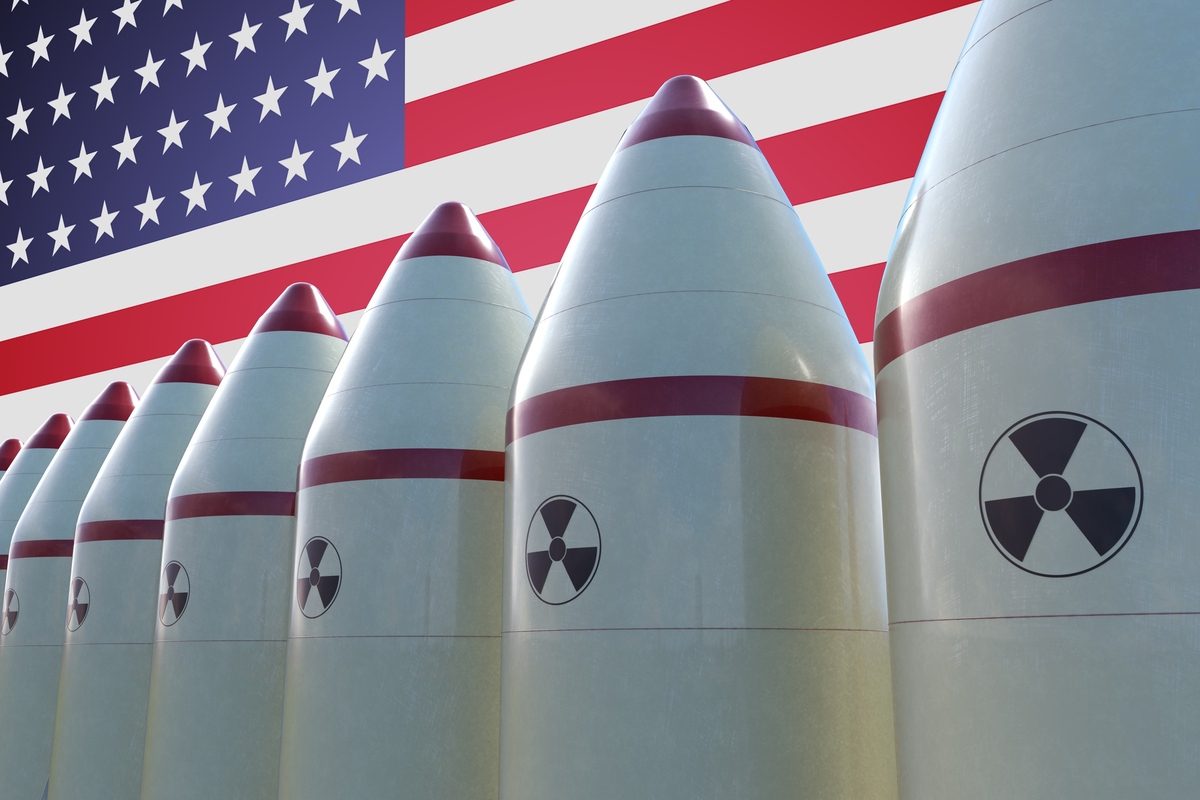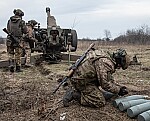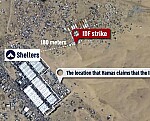Europe faces tough choices without US nuclear deterrent
Europe must begin to think seriously about a future in which the United States and its nuclear weapons are not the ultimate guarantor of European security. The credibility of the US deterrent is diminished by previously unthinkable talks between the White House and Russia, the outbreak of a tariff war, and the threat of annexing Greenland. Unlike during Donald Trump's first presidency, Europe is now aware of the gravity of the situation. Europe's two nuclear powers, France and the United Kingdom, want to step up consultations with each other on strategic weapons and launch a dialogue between the nuclear and non-nuclear states in Europe. However, any new solution will require compromises, whether on deterrence credibility, strategic stability, or non-proliferation policy.

Scepticism about the United States' willingness to wage nuclear war on Europe's behalf emerged long before Donald Trump entered the White House. Even during the Cold War, French President Charles de Gaulle doubted whether the United States would "trade New York for Paris." But the actions of the second Trump administration have added a new sense of urgency to Europe's efforts to secure its own defence. For Europeans, taking responsibility for their own security is not just a matter of greater political will, higher defence budgets or better coordinated procurement processes. According to the US magazine Foreign Affairs, Europe must address the strategic nuclear trilemma:
1. create a credible and effective deterrent to Russia;
2. achieve strategic stability (i.e. reduce the attractiveness of using nuclear weapons first);
3. pursue a policy of nuclear nonproliferation to new states.
Europe cannot achieve all of these goals; choosing any two makes it impossible to achieve the third. If Europe opts for strategic stability and nuclear non-proliferation, it may not be able to deter Russia. However, to strengthen its nuclear position to the point of credible deterrence, Europe must either allow new states to acquire weapons or sacrifice a degree of strategic stability. Neither option is ideal.
The combination of nuclear non-proliferation and strategic stability is most similar to the current European arrangement without US protection. In this scenario, France and the UK remain the only European nuclear powers and no other countries acquire nuclear weapons. Europe's two nuclear powers would continue to maintain arsenals designed primarily to provide a reliable second-strike capability, but not to provide a large-scale first-strike capability. However, Europe's defensive position vis-à-vis Russia lacks credibility in this case. Countries on NATO's eastern flank, especially the Baltic states, will remain vulnerable to a limited Russian incursion. Moscow will be able to seize the territory of neighbouring states under the threat of a nuclear attack against Europe (a tactic known as 'aggressive sanctuarisation').
Given Russia's overwhelming superiority over France and the United Kingdom, this threat will be at a sub-strategic level (nuclear weapons with less power and shorter range for use on the battlefield), both in terms of quantity and variety of arsenal. After invading the Baltics, for example, the Kremlin will try to intimidate the European powers with limited use of nuclear weapons, to which they are unable to respond in the same way, and to maintain control of the occupied territory. Without the US arsenal, therefore, nuclear non-proliferation and strategic stability will come at the expense of credibility.
Alternatively, Europeans can choose non-proliferation and credible deterrence. As in the first scenario, France and the United Kingdom will remain the only European powers with nuclear weapons. To deter a Russian attack on the Eastern European front, however, they will need to expand their arsenals of tactical nuclear weapons and demonstrate a willingness to use them, including deploying them first. Like the United States and NATO during the Cold War, when the Soviet Union acquired the ability to strike the United States with nuclear weapons, London and Paris will need to expand their limited nuclear capabilities. In addition, military doctrines will need to be updated to capture their real-world use in combat operations and to detail ways to manage escalation. Prioritising nuclear non-proliferation and deterrence requires giving up strategic stability. The credibility of the first use of nuclear weapons, which would be perceived as a threat by any potential target, will increase the likelihood of the outbreak of nuclear conflict.
As a last resort, we are left with credible deterrence and strategic stability, whereby the continent would sacrifice its commitment to non-proliferation. The European nuclear powers would retain a nuclear arsenal optimised for retaliation and thus preserve strategic stability. However, only control of such an arsenal by the threatened states (not just France and the UK) will serve as a credible deterrent to Russian conventional or limited nuclear threats. This requires the proliferation of nuclear weapons to previously non-nuclear states: the Eastern European states would need to have their own nuclear arsenals to credibly deter Russia from attacking.
Polish President Andrzej Duda supports such a scenario. Not only has he asked for the transfer of some (US) nuclear weapons to Poland, but he has also indicated Warsaw's interest in starting to develop its own strategic arsenal. "I think the time has come when it is safer for those weapons to be here already," Andrzej Duda said. "NATO's borders shifted east in 1999, so 26 years later NATO's infrastructure should also shift east." However, the high costs make this scenario the least likely. The acquisition of nuclear weapons by European states could deal a mortal blow to the Nuclear Non-Proliferation Treaty. Moreover, it will be logistically difficult for countries like Poland to acquire nuclear capability quickly because they lack a civilian nuclear industry that they could use to produce nuclear weapons.
According to the Defense News website, European nuclear weapons may end up in Germany, which has enough funding to co-finance nuclear programmes, rather than in Poland. The German-British defence agreement (Trinity House Agreement), concluded in autumn 2024, explicitly foresees an exchange of views on nuclear issues. The nuclear dialogue proposed by French President Emmanuel Macron was also supported at an early stage by German Chancellor-designate Friedrich Merz. France has about 40 nuclear-capable cruise missiles and an equal number of nuclear-capable Rafale ground-based fighter-bombers. The rest of France's approximately 290 nuclear warheads are intended for use at sea, either from submarines or by Rafale bombers from the aircraft carrier "Charles de Gaulle". The British nuclear arsenal is located exclusively on submarines.
Politically, the most appropriate choice for European policymakers seems to be opting for strategic stability and nuclear non-proliferation while giving up credible deterrence against Russia. In that case, Europe will have to hope that Moscow does not bluff and seize European territory with conventional forces and nuclear threats. As a result, some version of British or French extended nuclear deterrence may prove most attractive. It would provide a credible route to deterrence without the political costs and security risks associated with nuclear proliferation. Its implementation can happen relatively quickly if Paris and London are willing to act decisively. Although the risk of a nuclear first strike against Europe would increase, it could remain manageable if France and Britain develop new doctrines that clearly signal a willingness to use nuclear weapons first.










